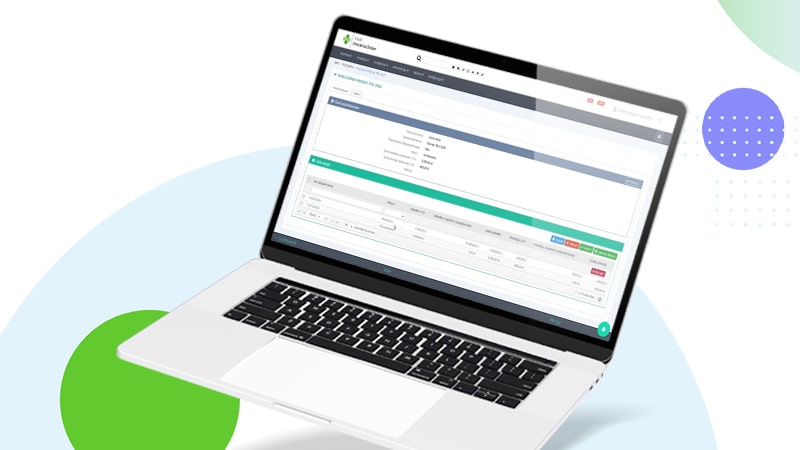In times when there are plenty of offers on the insurance market, finding and negotiating an attractive policy may be, from the customer’s point of view, a highly complicated and time-consuming process. It is in this situation that the assistance of a broker is invaluable, as they have excellent knowledge of the current offers and are therefore able to propose the most beneficial solution.
The idea behind the creation of the broker profession is to minimise the differences between the experience and knowledge of a specialised insurance company and the consumer seeking protection. A broker is thus a kind of a liaison between the parties in the insurance process.
It is also worth emphasising that a broker cannot be engaged with any particular insurance agency, which guarantees objectivity. The broker will strive to present an offer that is in fact the most beneficial for their client, instead of focusing on the advantages of the company they represent. This makes us more willing to seek their advice.
Who is an insurance broker and on whose behalf do they act?
An insurance broker is, in a sense, an insurance intermediary and also an insurance distributor. They act for or on behalf of their client. The broker is entitled to conclude insurance contracts or insurance guarantee contracts on the basis of a power of attorney granted by the client.
An insurance broker acts in the interest of the client (policyholder) and not the insurance company, and is therefore both an advisor and an agent for the client. The broker’s work involves advising the customer on insurance, as well as managing and executing policy contracts and handling claims.
Advice given by a broker ought to be backed by a thorough analysis of all the offers available on the market, and the recommendation of a specific product should always meet the customer’s current needs. It is worth noting that it is the duty to advise on insurance issues that distinguishes a broker from other professional groups that mediate in the conclusion of policies. The function of a broker can be performed by a legal or natural person, but not by a partnership.
The role of an insurance broker – what is an insurance broker responsible for ?
Broker’s activities, i.e. the basic duties you will perform as a broker, include not only entering into contracts, but also acting as an advisor who explains, suggests and compares various options. In addition, the broker takes care of all the preparatory activities for concluding a contract. They may also attempt to negotiate – and later renegotiate – more favourable policy conditions for their clients. Moreover, they are obliged to provide assistance in contract management and implementation.
A broker’s duties will also involve the creation of so-called broker’s slips, i.e. descriptions of proposals for specific insurance programmes, which also include the client’s characteristics, information on what is to be insured, to what extent, with details on specific risks and extensions. The slips are then presented to the potential insurer. Their duties also include writing reports for the Financial Supervision Authority.
As you can see, the range of a broker’s duties is quite wide, and any oversight may result in negative consequences for both the client and the broker.
Therefore, various online tools such as a CRM system for insurance brokers can be extremely helpful in performing daily duties. It is beneficial as CRM is a module allowing for management of relations with service recipients, which seem to be crucial in this profession. An efficient system for a broker’s office or a broker is a huge improvement in working comfort.
The broker’s task is also to assess the risks and potential loss resulting from a given insurance policy, and in case of such loss, the broker will assist in its settlement, also by representing their client in seeking compensation.
What is the difference between an insurance broker and an insurance agent?
A broker acts for the client, whereas an agent acts for the insurance company they work for. This difference is significant as the agent will only present offers from their own company, so it is worth choosing their services when the client has decided on a particular company and is only looking for the best policy for them. A broker, as a person who is not engaged with any agency, can present more and varied offers, but above all they are able to create their own offer, personalised to the client’s needs. Moreover, their role does not end with the conclusion of the contract – they are obliged to provide assistance throughout its duration, in contrast to an agent, where the signing of the contract means the end of cooperation. These professions also require completely different qualifications – a broker must pass an exam before the Examination Commission for Insurance and Reinsurance Brokers, while an agent’s exam is held after completing training at a given insurance company.
It should be added that an insurance broker is subject to compulsory professional liability insurance.
Who pays an insurance broker’s remuneration?
The profession of a broker and the catalogue of brokerage activities is regulated by the Act of 22 May 2002 on insurance intermediation. A broker receives remuneration for their activities from an insurance company after concluding a contract on behalf of their client and paying the premium. This is the so-called broker fee.
Who can become an insurance broker – what are the development prospects?
Virtually anyone who meets certain requirements can become a broker.You do not need to have specialised studies in this field as long as you pass the Insurance and Reinsurance Brokers Examination, which is organised twice a year by the Polish Financial Supervision Authority. Currently, at least 5 years of experience in the insurance industry or being a graduate of a field of study where you have already passed an exam in the subject area of the broker exam exempt you from taking this exam. Having passed the examination, you can obtain a permit issued by the PFSA. Every broker should also be entered in the nationwide list of brokers available in the Regulation of the Minister of Finance.
The work of an insurance broker is characterised by high availability and mobility. Taking into account the nature of their work, brokers rarely spend time at the office. The main duties of a broker include meetings with clients, so a successful career is guaranteed by highly developed soft skills, such as communication and negotiation skills. Customer relationships are nowadays the most crucial assets of companies operating in the insurance market. No wonder brokers are investing in modern tools such as CRM for insurance agents which help to manage customer relationships.



